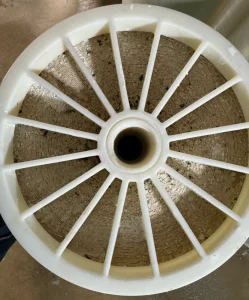What is a Water Filtration System? A Comprehensive Guide
Introduction
In today’s world, access to clean and safe drinking water is more critical than ever. But what exactly stands between you and potentially harmful contaminants lurking in your tap water? The answer lies in water filtration systems. But, what is a water filtration system and how does it work?
This comprehensive guide will break down the basics of water filtration, explore the various types of systems available, and help you understand why investing in a quality system is a smart move for your health and well-being.
What is a Water Filtration System?
At its core, a water filtration system is a device or process designed to remove unwanted substances from water. These substances can include:
- Sediment: Sand, silt, rust, and other particulate matter.
- Chemicals: Chlorine, pesticides, herbicides, industrial solvents.
- Heavy Metals: Lead, mercury, arsenic.
- Microorganisms: Bacteria, viruses, protozoa.
The goal is to provide cleaner, safer, and better-tasting water for drinking, cooking, and other household uses.
How Do Water Filtration Systems Work?
Water filtration systems employ various methods to remove contaminants. Here are some common techniques:
- Mechanical Filtration: This involves physically straining out particles using filters of different pore sizes. Examples include sediment filters and screen filters.

- Adsorption: This process uses materials like activated carbon to attract and bind contaminants to their surface. Activated carbon filters are highly effective at removing chlorine, volatile organic compounds (VOCs), and taste and odor compounds.
- Chemical Filtration: This involves using chemical reactions to neutralize or remove contaminants. Examples include pH neutralization and oxidation.
- Ultrafiltration (UF): This membrane-based technology removes suspended solids, bacteria, and viruses while retaining beneficial minerals.

- Reverse Osmosis (RO): This advanced filtration method uses pressure to force water through a semi-permeable membrane, leaving contaminants behind. RO systems are highly effective at removing a wide range of impurities, including dissolved salts, heavy metals, and microorganisms.

- Ultraviolet (UV) Disinfection: This method uses UV light to kill bacteria, viruses, and other microorganisms in water.

Types of Water Filtration Systems
The best type of water filtration system for you will depend on your specific needs and the quality of your existing water supply. Here are some popular options:
- Whole House Water Filters: These systems are installed on the main water line and filter all the water entering your home. They’re ideal for removing sediment, chlorine, and other common contaminants.

- Faucet Filters: These small filters attach directly to your faucet and provide filtered water on demand. They’re a convenient and affordable option for improving the taste and odor of your drinking water.

- Water Filter Pitchers: These pitchers contain a filter that removes contaminants as you pour water. They’re a simple and portable option for improving water quality.

- Under Sink Filters: These systems are installed under your sink and provide filtered water through a separate faucet. They offer a higher level of filtration than faucet filters and pitchers. RO systems are often installed under the sink.

- Commercial and Industrial Water Filtration Systems: For businesses and industrial applications, larger and more robust water filtration systems are required to meet specific water quality standards. These can include systems for pre-treatment, process water, and wastewater treatment.

Why Invest in a Water Filtration System?
- Improved Water Quality: Filtration systems remove harmful contaminants, providing you with cleaner and safer drinking water.
- Better Taste and Odor: Removing chlorine and other chemicals can significantly improve the taste and odor of your water.
- Health Benefits: Drinking filtered water can reduce your exposure to potentially harmful substances that may contribute to health problems.
- Cost Savings: Investing in a filtration system can save you money on bottled water in the long run.
- Environmental Benefits: Reducing your reliance on bottled water helps to reduce plastic waste.
Choosing the Right Water Filtration System:
When selecting a water filtration system, consider the following factors:
- Water Quality: Test your water to identify the specific contaminants you need to remove.
- Flow Rate: Choose a system that can provide enough filtered water to meet your needs.
- Filter Life: Consider the lifespan of the filters and the cost of replacement.
- Installation: Determine whether you can install the system yourself or if you need professional installation.
- Budget: Water filtration systems range in price from affordable pitchers to more expensive whole-house systems.
Conclusion
Understanding what is a water filtration system is the first step toward ensuring the health and safety of yourself and your family. By investing in a quality system, you can enjoy cleaner, better-tasting water and peace of mind knowing that you’re reducing your exposure to harmful contaminants.
Ready to improve your water quality? Contact us today to learn more about our wide range of water filtration solutions for residential, commercial, and industrial applications.
Request a Quote
Fill out the form below to discuss your water treatment needs. Our experts will get back to you within 24 hours.
You may also be interested in:

What is a Membrane CIP System? The Ultimate Guide for Plant Managers and Technicians

Understanding Scaling and Backpressure in Reverse Osmosis Systems
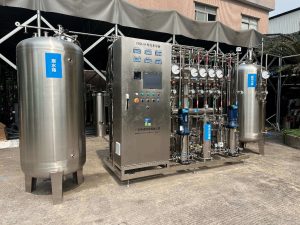
How to Purify Borehole Water for Drinking
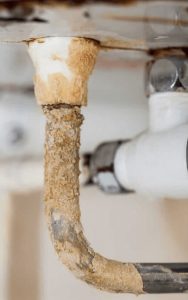
What is Hard Water and How to Remove Hardness From It?
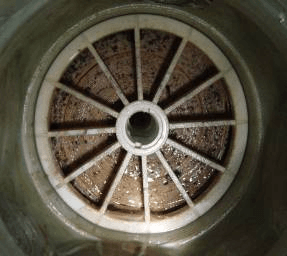
The Hidden Threat: Your Expert Guide to Preventing RO Membrane Biofouling
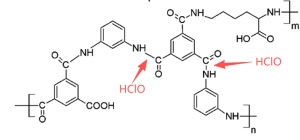
The Silent Killer of RO Systems: A Complete Guide to Preventing Membrane Oxidation

How to Desalinate Sea Water: The Ultimate Guide to SWRO Technology
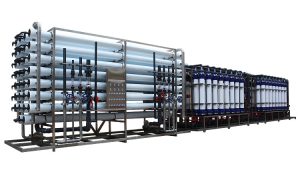
Understanding RO Membrane Scaling: Causes, Effects, and Prevention Strategies
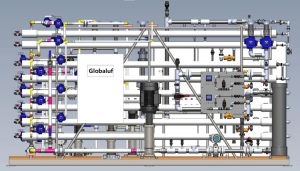
Beyond the Basics: Advanced Reverse Osmosis System Design by Globaluf
